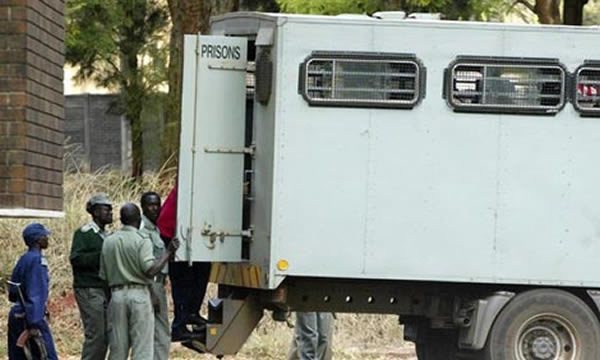BY ZENZELE NDEBELE
Police in Bulawayo are allegedly accusing magistrates of being too lenient in cases against people arrested in connection with the violence that rocked the country during the January 14 protests against fuel price increases, it has been revealed.
According to sources at the Western Commonage magistrates’ courts, top police officials on Friday communicated their displeasure at the high rate of acquittals amid claims that magistrates were instructed to postpone some of the cases.
Insiders believe that preparations are being made to bring magistrates from outside the city to handle the cases.
At least 120 people have been acquitted of charges of public violence and looting in the city since the controversial trials began while 110 were convicted.
Shoddy investigations by the police have been cited by magistrates as the reasons for acquittals in most of the cases. Sources at the various courts in the city said police were failing to link most of the suspects to the crimes.
“There were door to door searches where many people were arrested and now police are struggling to link them to the crimes,” said a source.
“Some people were arrested in cases of mistaken identity and that is why we have a case of a boy that was arrested because a police officer said he saw him sweating.”
Prosecutors that spoke to CITE said the government must expect a flood of lawsuits by some of the acquitted people due to the manner they were arrested.
‘Some of the people that have been convicted quickly pleaded guilty because they had no lawyers and thought the magistrates will be lenient with them but they were handed heavy sentences,” added another prosecutor.
A fortnight ago lawyers took to the streets of Harare protesting against the mass trials of the people that were arrested during the protests.
The Zimbabwe Law Society members also petitioned chief justice Luke Malaba imploring him to stop what they termed the miscarriage of justice.
According to correspondence from the Judicial Services Commission (JSC) to the courts seen by CITE, Malaba was concerned about the criticism of the way the judiciary was handling the cases.
“As already pointed out, the chief justice is concerned about the criticism levelled against the judiciary generally, and the magistracy in particular,” reads part of the note.
“Following the meeting with the Law Society and the subsequent petition by a section of its membership, the chief justice requested for a report on all matters relating to the public demonstrations that were brought before the courts.”
In response the acting chief magistrate submitted that 371 cases were brought before the courts between January 14 and 29.
Twelve juveniles were released into the custody of their parents/guardians or social welfare officers when they appeared in court. At least 995 suspects were denied bail.
“From these cases the chief justice acknowledges with concern that a high number of these cases remain pending trial,” added the document. “The concern is highlighted by the fact that some of the accused persons are remanded in custody.
“They must therefore be afforded fair and speedy trials in accordance with the constitution.”
The JSC said it would avail more magistrates to speed up the trials.
A report released by the Zimbabwe Human Rights NGO forum on Friday said 17 cases of extrajudicial killings allegedly committed by the army have been recorded so far.
The NGOs said they had documented at least 1 803 violations committed since January 14 committed by the security forces across the country.
They include at least 17 cases of rape or other violations of a sexual nature, 26 abductions, 61 displacements, 81 assaults consistent with gunshot attacks, at least 586 assaults and torture, inhuman and degrading treatment including dog bites, 954 arrests and detention (including dragnet arrests), among other violations.

